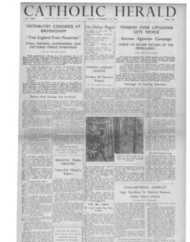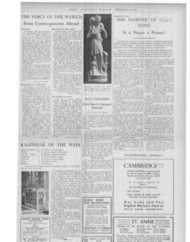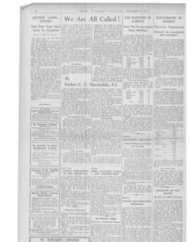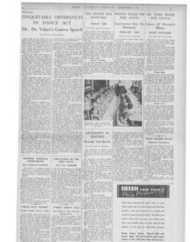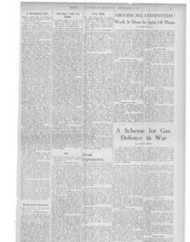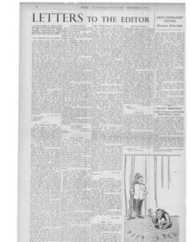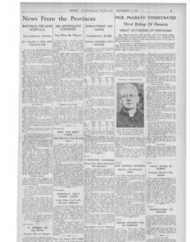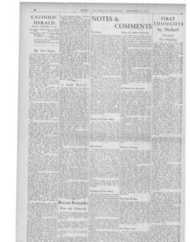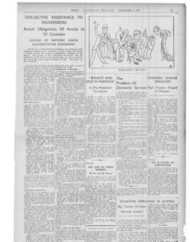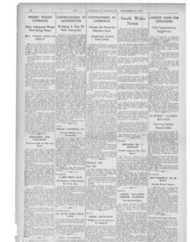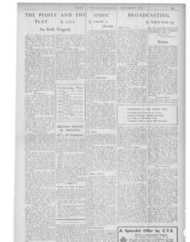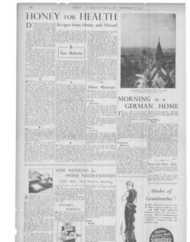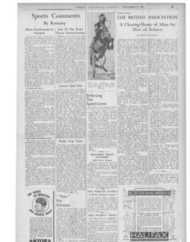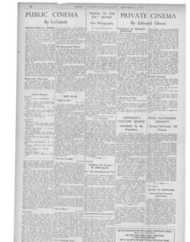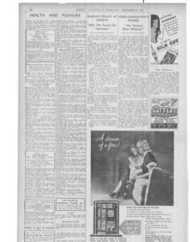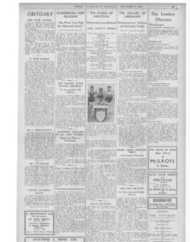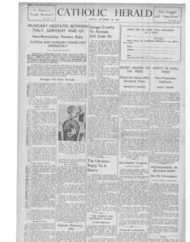Page 6, 27th September 1935
Page 6

Report an error
Noticed an error on this page?If you've noticed an error in this article please click here to report it.
Tags
Share
Related articles
Can A Christian Also Be A Marxist?
Russia
On Your Marx The Challenge Of Marxism By Klaus Bockmuehl...
Nazism And Marxism
Wanted : A Christian Revolution Welsh Nationalist Leader...
SOME B
A Handbook Of Marxism
A Handbook of Marxism. Being a Collection of Extracts from the Writings of Marx, Engels and the Greatest of their Followers • • Chosen by Emile Burns. (Gollan ez, 5s.)
Reviewed by E. I. WATKIN Mr. Burns has done his work well. He has presented us with a statement of Marxism as accepted and interpreted by the official ideology of bolshevik Russia. For five shillings the British reader is enabled to study it in the words of its most accredited exponents without the toil, dreary enough for any non-Marxist. of ploughing through the vast literature left us by Marx. Engels and Lenin.
We have, it is true. to trust Mr. Burns's iudgment that the passages he selects are in fact the moat representative and important. But even a short study of this volume makes it clear that they cover all the leading principles and main issues of the Marxian-bolshevik ideology.
That an ideology so radically false should be so widely professed must. of course, be a painful thought to those who hold any form of theism or spiritual philosophy. But given that fact, it is important. indeed necessary, that we should know what this false creed really holds and wherein its attraction consists. A pseudo-religion which is the official faith of a country of a hundred and sixty millions (not to speak of multitudes in the rest of the world) cannot be ignored or misunderstood by those whose faith it attacks and seeks to destroy. We ought to know what bolshevik Marxism teaches, what elements of truth it contains, where and how it is false. It is to be wished that the ideologies professed by the sister forms of totalitarianism, Fascism and National-Socialism, were made available to the student by similar compilations.
The book opens with the famous Communist Manifesto of 1848 ending in the slogan which prefaces to-day the Moscow broadcasts " workers of the world unite." It proceeds with copious excerpts from Marx and Engels. These are followed by Lenin and Stalin and the book concludes with the enlarged and refurbished manifesto of 1928.
Of special interest from the philosophic standpoint are Marx and Engels on (Seeman ideology. F.ngels's critique of Feuerbach, the more lengthy excerpt from his hook against Duehring. Lenin's essay on the teachings of Karl Marx and his attack upon Mach and Avenarius from his Materialism and Empirio-Criticisin.
From these extracts the reader can discover the main outlines of the dialectical materialism which is to bolshevism what the scholastic philosophy is to the Catholic Church. Dialectical materialism seems to me first and foremost a reaction against the idealisms and scepticisms which have dominated European philosophy since the downfall of Scholasticism. It represents a crude but vigorous attempt to maintain that our knowledge is the knowledge of real objects truly apprehended. This, however, is unfortunately bound up with the denial that this real and largely material world is itself the product of spirit.
Marx and his disciples do not seem ever to have studied seriously the ideal-realism of the Platonic-Aristotelian tradition which combines the idealist doctrine of the priority of spirit with a realist acceptance of an objective universe of material objects whose true nature can within limits be known. In a scholastic environment Marxist materialism could not have taken shape.
The Marxian adoption of the Hegelian view that the history of the universe and man embodies a dilectie whereby an advance in one direction is followed by an advance in the opposite direction, to be succeeded by a synthesis which continues the first advance on a higher plane because the counter movement has also been incorporated, seems to me the most valuable part of the system.
The tendency to reduce matter to motion and to understand motion so widely that it amounts to energy of any kind also seems to me a groping in the right direction. For it allows us, though Marxism does not take the step—partly, it may be, because it retains a matter which though essentially moving is not simple energy—to regard spiritual energy as higher and more real than material and thus to transcend materialism. But even were this step taken there would still be no admission of any energy or reality higher than human will, or any being which transcends the dialectical process of cosmic des elopment. And this is the cardinal error of Marxism which supports its deification of a communist society and makes it irredeemably atheistic.
Typical of the crudity of the Marxist philosophy is Engels's notion of freedom as man's knowledge and manipulation of the necessary laws of nature. This does not touch the true problem of freedom, whether or no the choice which determines man's manipulation of natural forces is itself necessitated. Marxism illicitly transfers the freedom of truly free action to action free only in the sense that it is not wholly determined by its corporeal subject matter.
The omnipotence of economics which in practice is the most materialistic feature of Marxism is shown by the tendency evident in these extracts to turn quietly from metaphysical principles to economic theory (the Marxist rejection of metaphysics has a special sense relevant only to Hegel's usg..of the term). The selections which discuss historical events from the communist standpoint or develop the communist programme genesails or on a particular question will interest the larger number of readers.
At times they are unconsciously humorous. It is grimly amusing, for instance, to read Lenin's denunciation of czarist brutalities including " the persecution of religious sects." We are reminded of Robespierre's refusal of a judgeship because he was conscientiously opposed to capital punishment! The communist manifesto of 1928 contains repeated attacks on the League of Nations the " counter-revolutionary holy alliance of imperialist powers " the main purpose of which is to retard the irresistible growth of the revolutionary crisis and to strangle the soviet proletarian republics by war or blockade, and upon the Second International for supporting it. These are comic reading in 1935, when M. Litvinov, the representative of the U.S.S.R., presides over the council of this " anti-proletarian " body,
blog comments powered by Disqus


